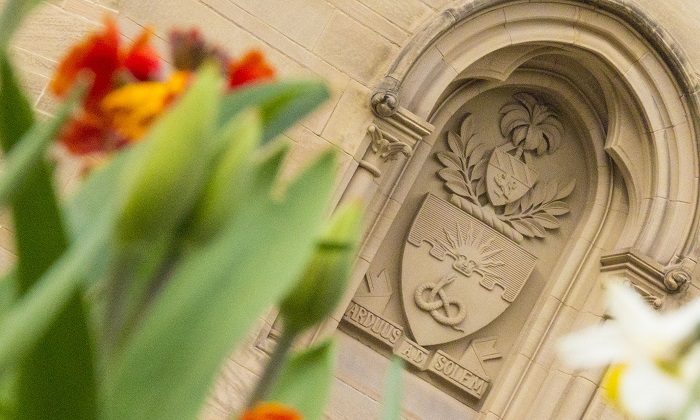University launches £9million cost of living support for students
15 Nov 2022
Our University is dedicating £9million to providing further student support

In recognition of the significant challenges faced by students over rising costs, our University is dedicating £9million to providing further student support, building on an initial programme of wellbeing and financial assistance provided together with the Students’ Union.
The latest package of support represents a commitment of over £7million. Further targeted support in 2023 for those most in need will be announced in due course and bring the total of committed student support to £9million.
Registered students will each receive a one-off cost of living payment. Full-time students will receive £170 and part-time students will receive £85, paid into their UK bank account.
This sector-leading initiative is a result of ongoing discussions between the University and the Students’ Union, arising directly from student feedback and suggestions from the Executive Officers.
The roll-out for the payments is expected before the Christmas break, to help support students over the winter months. A very small number of professional level postgraduate courses are excluded.
It builds on existing financial support previously announced, including increases to the University’s Cost of Living Support Fund, and providing grants of up to £2,000 to students who are struggling, plus raising the minimum stipend for 2022/23 by more than £2000 for all PGRs who are on a studentship funded directly by the University.
We have also put into place assistance in the form of cheaper food options, free microwave and hot water facilities, free showers, and free period products. Library fines have been ended and free eBooks provided to help students meet costs of studying. The Students’ Union is also helping to provide free and discounted access to sports and recreation and has put on study nights with free food in a warm environment.
Working with the Students’ Union, we are providing more jobs for students on campus, easier and increased access to short-term emergency financial assistance, and funding a new Money Advisor post to be created in the Students’ Union. These and other measures are detailed online and are being communicated to students.
Sam Bronheim, Union Affairs Officer at the Students’ Union, said: “We have valued collaborating with the University on this project and are glad they have listened to our ideas. With action like this, we hope students feel that, through the Students’ Union, their needs have not only been heard but met by the University.”
Professor April McMahon, Vice-President for Teaching, Learning and Students, said: “The cost of living crisis is a major concern for our students, especially at this time of year. I’m so delighted that, working closely with the Students’ Union, we’ve been able to offer this payment. We also have wider support in place including wellbeing and further financial support through our Cost of Living Support fund, so would encourage any student that needs our help to please reach out.”
Cost of living support to staff
Our University has previously announced a cost-of-living payment of £1,000 to all colleagues paid within grades 1-8 (or to a total salary limit of £71,644 for employees on equivalent pay structures) who have been in post as of 1 October 2022. The payment will be split in two parts, £500 paid with the November payroll, and a second payment of £500 in the January 2023 payroll (for staff in post on 1 January). For those who wish to there is the option to donate this to student support funds or to other charities. The University is already an accredited Real Living Wage Employer.
Graduate teaching assistants, who work variable hours, will receive a 3% pay rise.
The University believes that providing for this cost of living support for staff and students is the right thing to do at this very difficult time, recognising that it is an urgent priority for so many of our people. Inevitably, this means difficult choices are being made about other areas of planned investment for this year which will have to be reprioritised.
